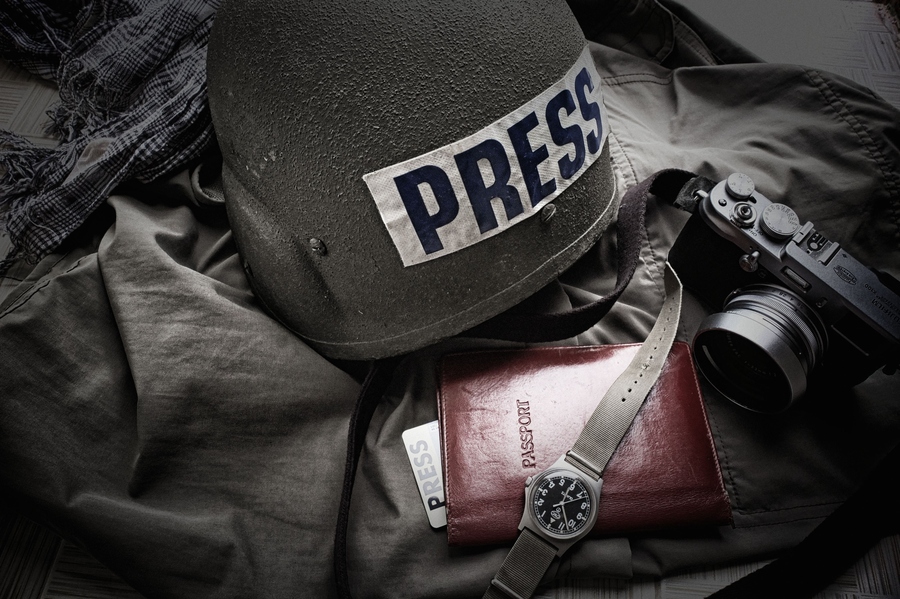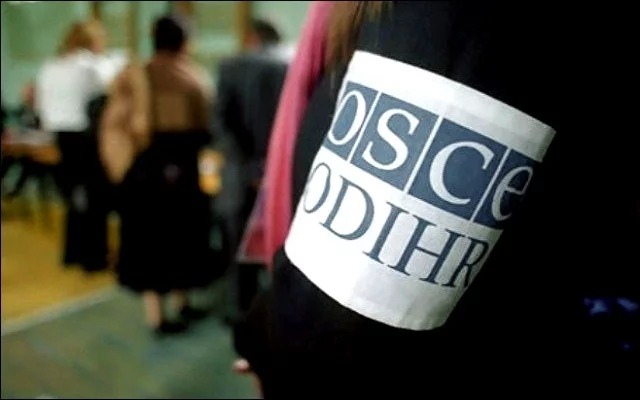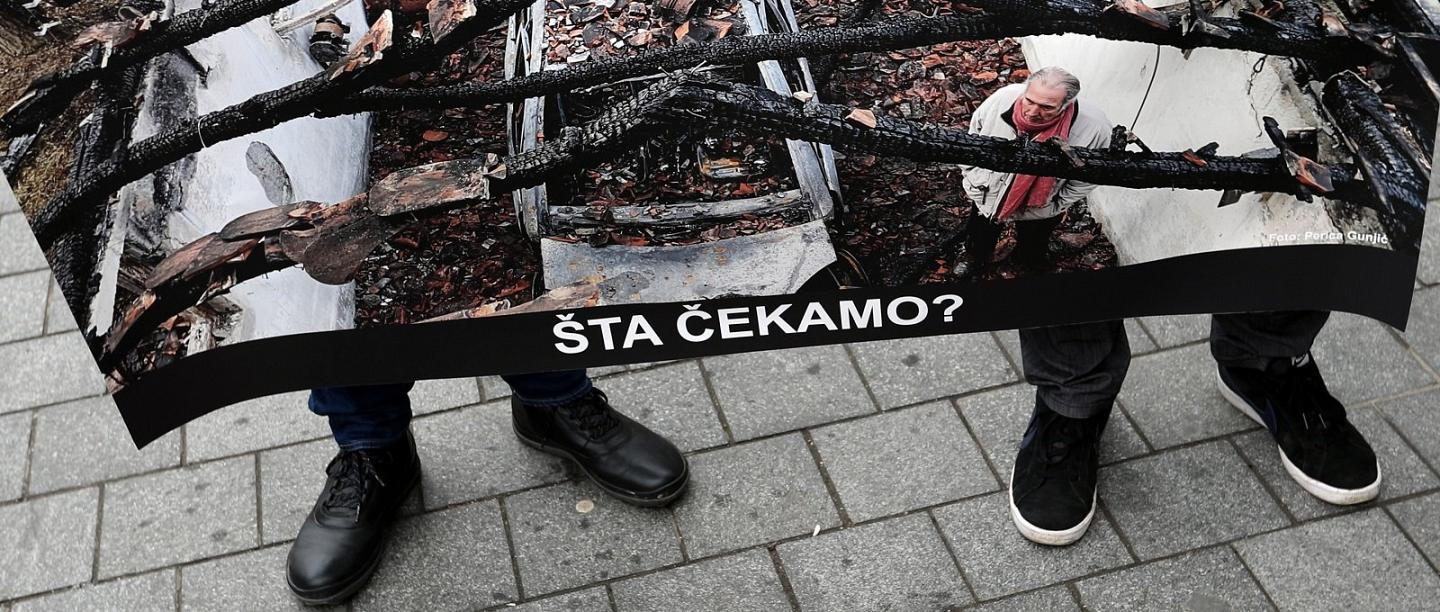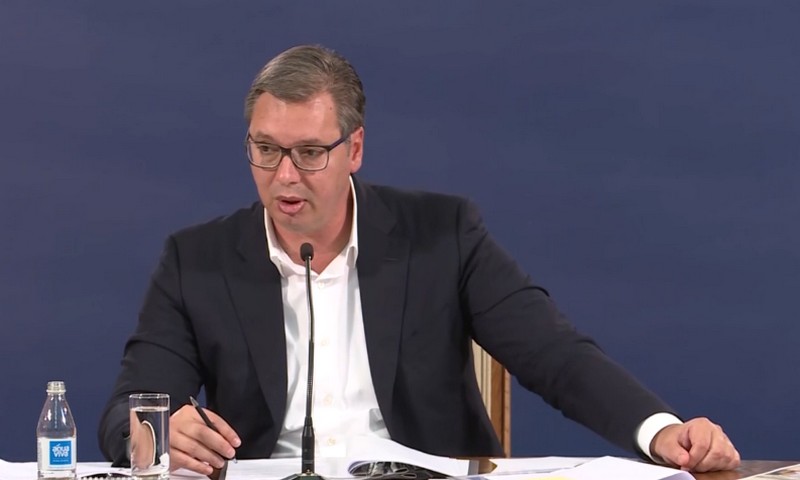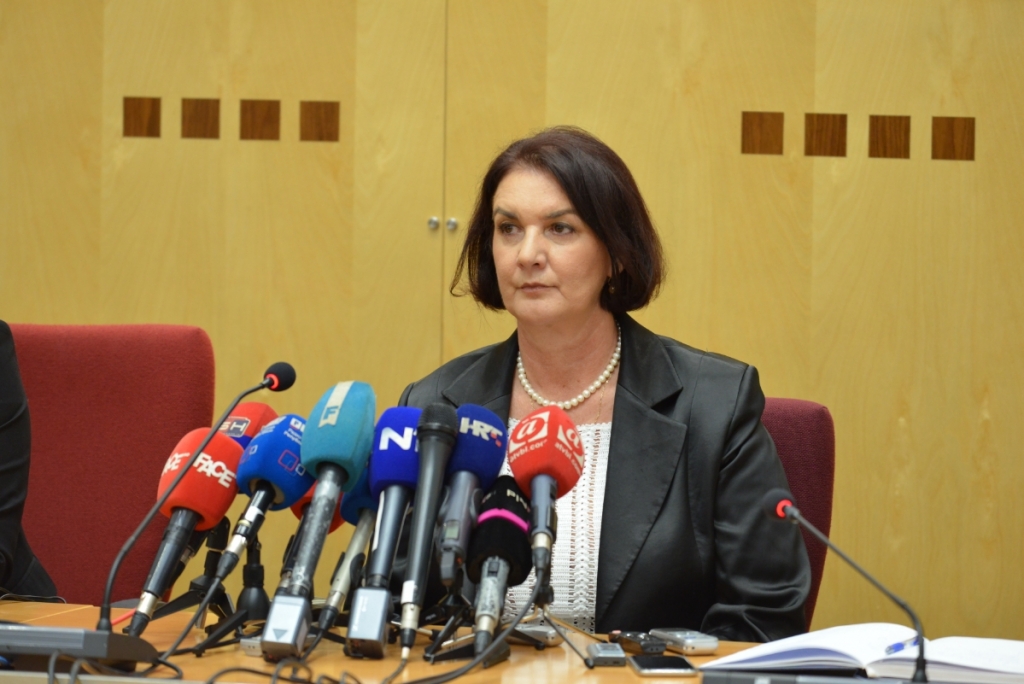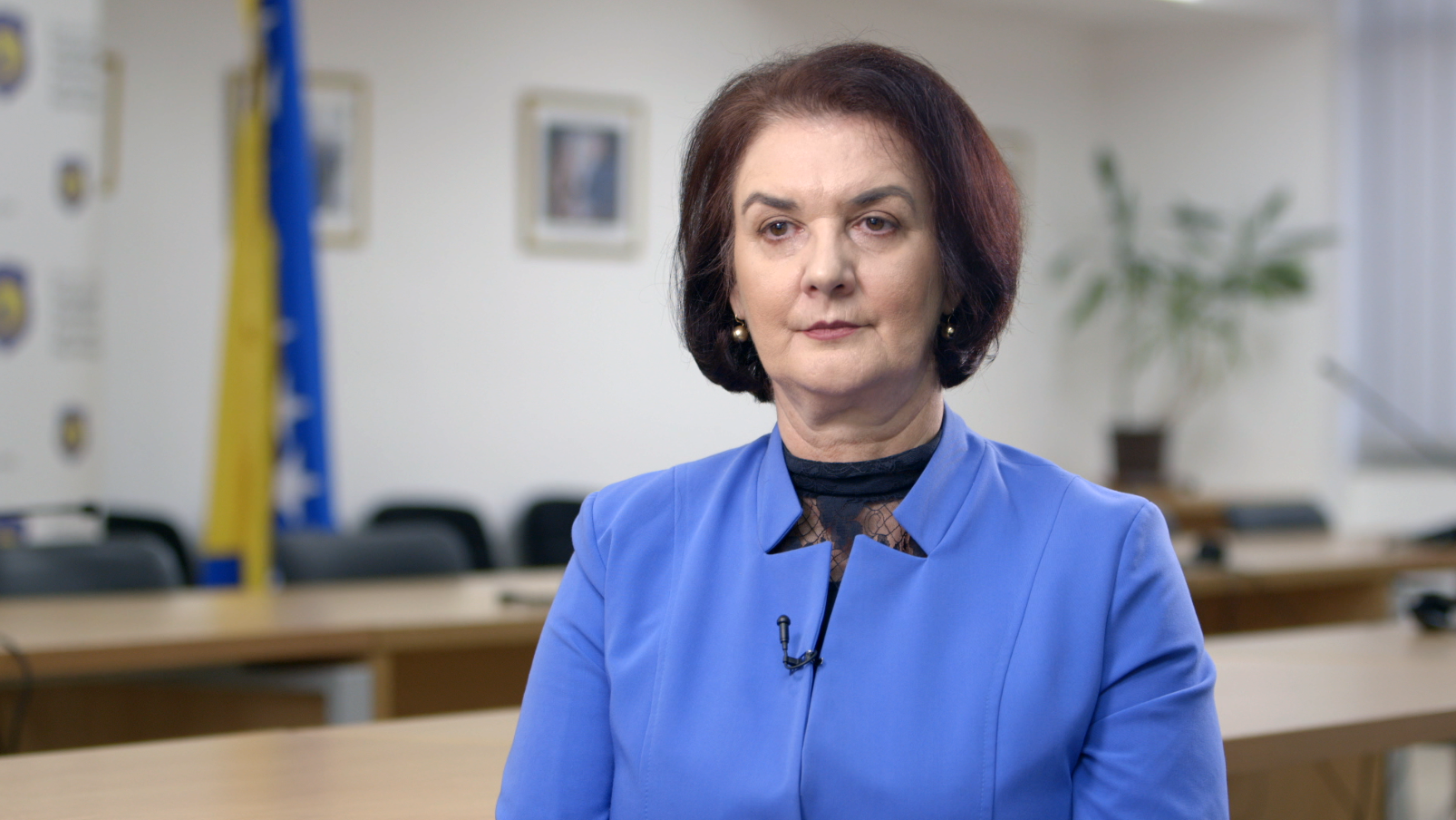On being elected prime minister of Slovenia at the beginning of March, Janez Janša, the conservative leader of the right-wing Slovenian Democratic Party (SDS), faced the immediate challenge of a global pandemic. And he wasn’t thrilled to have his crisis management methods questioned.
Blaž Zgaga, a Slovenian investigative journalist, learned this the hard way. When Zgaga questioned the legality of the powers given to the ‘Crisis Headquarters’ that was formed as the highest decision-making body at the beginning of the country’s coronavirus pandemic in March, he faced immediate backlash. The HQ shared a tweet sent by an anonymous user depicting Zgaga and three other notable critics of the government’s Covid-19 response as far-left elements attempting to destabilise Slovenia.
Attacks against Zgaga were continued by Nova24TV, a media outlet founded by the ruling party and run until mid-March by the current interior minister, Ales Hojs.
“They accused me of belonging to the deep state,” Zgaga says. “I received a lot of anonymous threats afterwards… [which said] I should be shot, or that people should beat me up if they see me on the street.”
Janša has also personally participated on attacks on journalists, using the hashtag #FakeNews on Twitter and publishing inflammatory tweets against the Slovenian national broadcaster, describing its journalists as “too numerous and too well paid”.
In May, the European Federation of Journalists (EFJ) sounded the alarm: “It is worrying to see the rhetoric of a Trump or an Orbán now infecting Slovenia,” EFJ general secretary Ricardo Gutiérrez said. “We call on the European Union to sanction this incitement of hatred against journalists.”
Slovenia has long been lauded for its press freedom: it currently occupies 32nd place on the Reporters Without Borders’ (RSF) 2020 World Press Freedom Index. But attacks against media and journalists critical of the government have intensified since Janša’s return to power (he was previously prime minister in 2004 and 2012), especially during the pandemic. In March, the Council of Europe explicitly named Slovenia as one of the countries using the coronavirus as an excuse to limit press freedom.
Over the years, Janša has successfully established a strong base of media supportive of his rule – with a little help from a friend of great notoriety.
Earlier this year, the Slovenian investigative news website Necenzurirano revealed that three Hungarian companies linked to the Hungarian prime minister Viktor Orbán’s Fidesz party had invested €1.5 million in Nova24TV. Janša’s government has now set its sights on public television. In July, the government unveiled plans to amend existing media legislation in a way that will “strip the public broadcaster of public money that will be allocated to private media – all in favour of the government’s agenda,” says Tomaš Deželan, a political scientist and professor at the University of Ljubljana.
According to the International Press Institute (IPI), all the cuts combined would deprive RTV Slovenija of about €25 million, or 20 percent of its funding. “Staff cutbacks in an already understaffed institution would be inevitable and would, in turn, critically jeopardize its mission to provide quality programming in the public interest,” notes IPI. “Also, at the beginning of July 2020, the third-largest TV channel, Planet TV, which was publicly owned, got sold to Hungarian business people close to Orbán,” adds Deželan.
Vexatious litigation against journalists
Slovenia is not the only Central or Southern European state where democratic institutions have been dismantled and the media delegitimised in a process that allows the region’s increasingly authoritarian governments to clear the way for total power. Across the Western Balkans, from Serbia to Albania, from North Macedonia to Kosovo, journalists are facing threats, smear campaigns and work in precarious conditions. This issue isn’t limited to non-EU countries: this year Poland fell to its lowest ever position on the Press Freedom Index, while Bulgaria is widely considered the worst country in the European Union for media freedom.
As a result, trust in the media is waning and moreover, due to the precarious position of the media industry (a result, in large part, of falling advertising revenues), many media outlets and journalists have adopted a position of self-censorship and don’t dare to report on the erosion of democratic institutions.
Just over the border in Croatia, the politicisation of public television, similar to what is currently happening in Slovenia, has already taken place.
The most recent Press Freedom Index notes that “the government has not stopped meddling in the affairs of the public TV broadcaster HRT” since the right-wing government of Tomislav Karamarko (HDZ) came to power in 2016 and almost 70 journalists from the public broadcaster were axed or demoted, and ten TV and radio shows were terminated. HRT’s editorial policy has shown a clear pro-government bias ever since.
More concerningly, in 2018 HRT brought legal action against some of its own journalists and the Croatian Journalists Association (HND) due to “damage to the broadcaster’s reputation and good name” caused by a statement in which HRT members of HND distanced themselves from various scandals involving the national broadcaster (including the black market sale of World Cup tickets that had been issued to HRT by FIFA).
Criminal proceedings against journalists on charges of insult and defamation is very common in Croatia.
In May 2020, HND revealed that at least 905 lawsuits brought by politicians and public figures against journalists are currently ongoing in Croatia. HND president, Hrvoje Zovko (who is one of the journalists being sued by HRT), tells Equal Times that such lawsuits aimed at “censoring, intimidating and silencing journalists” threaten media freedom and “incite journalists to self-censorship”, adding: “In Croatia, the judges have taken over the role of editors”.
The abuse of defamation lawsuits that force journalists to invest time, money and energy to defend themselves are known as SLAPPs, strategic lawsuits against public participation, the objective of which is to hinder freedom of expression and shut down critical speech. But the use of vexatious litigation against journalists is not limited to Croatia. Since 2018, a group of MEPs have been calling on the European Commission to promote an anti-SLAPP EU directive which would give journalists and media groups across the EU the power to request the rapid dismissal of these lawsuits.
A climate of impunity in Serbia, Montenegro and Bosnia
Meanwhile, in countries such as Serbia, Montenegro, and Bosnia-Herzegovina media houses and workers face a barrage of “worrisome trends” according to Pavol Szalai, head of the European Union and Balkans Desk at RSF. He notes “smear campaigns – with the active participation of politicians and pro-government media – against journalists critical of their governments; abuse of the public media to promote governments and ignore or smear the opposition; and a lack of appropriate reaction of the political and law enforcement authorities to physical attacks and other serious threats to journalists.
“But it is perhaps the climate of impunity for crimes carried out against journalists which is the most dangerous for press freedom in Serbia, Montenegro and Bosnia. Another side of the same coin is journalists becoming the targets of law enforcement institutions instead of them being protected and their aggressors being prosecuted,” Szalai explains.
The case of the Montenegrin investigative reporter Jovo Martinović is a prime example. Martinović spent 15 months in provisional detention from 2015 to 2017 and was convicted on trumped up charges of marijuana smuggling and criminal association, for which he had been given an 18-month prison sentence in January 2019, “despite overwhelming evidence that his organized crime contacts were simply a function of his investigative reporting,” according to RSF. The sentence was quashed last October and Martinović is currently awaiting a retrial that his supporters hope will end in acquittal.
In Serbia, the judicial system has also been slow in handling the cases of persecuted journalists, like the case of those who set fire to the home of investigative reporter Milan Jovanović in December 2018. The accused mastermind is a former mayor and senior official in President Aleksandar Vučić’s SNS party, on whose alleged corruption Jovanović focused his reporting.
In March 2020, Associated Press noted that “Vučić has an almost total grip on Serbia’s mainstream media. Pro-government tabloids regularly blast his critics as foreign stooges or criminals without allowing them to respond”. Independent journalists and media who still try to investigate crime and corruption in Serbia are the ones most vulnerable to attack. For example, journalists working for KRIK, an investigative newsroom focused on covering organised crime and corruption, were accused of being narco traffickers. One reporter even had their apartment broken into.
“Ever since [the attacks on KRIK began in the tabloid press in 2017], the methodology of the attacks has only evolved,” says KRIK journalist Jelena Radivojević. “Even worse, high-profile statesmen have also joined the attacks and started insulting journalists.” On 10 June 2020, KRIK journalist Bojana Pavlović was stopped by the police after taking photos of Danilo Vučić, the president’s son, in the company of a man suspected of being a member of a criminal gang. The (alleged) policemen demanded that she delete the footage, and another man confiscated her phone without any intervention from the police.
“After this harassment, high-profile politicians from the ruling party and the government started attacking KRIK and accusing us of ‘stalking the president’s child’. This ‘child’ is 22 years old,” says Radivojević.
President Vučić won a landslide victory in the parliamentary elections that took place on 21 June 2020, with over 60 per cent of the vote. Opposition parties boycotted the election and questioned its legitimacy as only half of Serbia’s voters even took part. This situation worries journalists like Radivojević: “The government will be able to single-handedly make all the decisions, and even change the constitution. I am sure that the pressure on independent media will only increase.”
Left without effective opposition, observers expect that Vučić will be tempted to consolidate his power in a way similar to Orbán in Hungary – by increasing the pressure on the individuals and institutions that don’t conform to his world view, by bringing the judiciary to heel, hampering the operation of opposition groups, tightening his grip on trade unions and civil society, and embarking on constitutional and legal changes that will allow him to rule unopposed. At the end of July, Vučić caused outrage when he ordered Serbia’s finance ministry to investigate links between several journalists and human rights NGOs to terrorist financing and money laundering, in a move that Amnesty International has called “a blatant act of intimidation”.
The dismantling of independent media in Hungary, a glimmer of hope in Slovakia
One of the most startling examples of the erosion of press freedom has taken place in Hungary where the government “has systematically dismantled media independence, freedom and pluralism, distorted the media market and divided the journalistic community in the country, achieving a degree of media control unprecedented in an EU member state,” according to a 2019 joint report issued by a number of press watchdogs.
“It has been really hard to be a journalist in Hungary for the past ten years, since Fidesz-KDNP came to power in 2010. The representatives of the government, the ruling parties, the public institutions have been hostile to the media outlets which are critical to the government,” says Leonárd Máriás, a freelance journalist from Hungary.
The report further notes that the Hungarian government has managed to silence the critical press not with violence, but “through deliberate manipulation of the media market – engineering the forcible closure or effective government takeover of once-independent media – and through the delegitimization of journalists.”
For example, late last month, the three leading editors and more than 70 journalists at Hungary’s main independent news website, Index.hu, resigned after the website’s editor-in-chief Szabolcs Dull was fired amidst claims of political interference. In an open letter on Index.hu, the departing journalists said that Dull’s dismissal was “a clear interference in the composition of [the] staff”, and “an overt attempt [by the government] to apply pressure on Index.hu”.
But while media freedom seems to be deteriorating throughout the region, the situation in Slovakia offers a glimmer of hope, two years after the shocking death of investigative journalist Ján Kuciak and his fiancée Martina Kušnírová, who were shot dead in February 2018.
Kuciak had been investigating alleged ties between Slovak businessmen, politicians and Italy’s notorious ‘Ndrangheta mafia. The murder was followed by mass demonstrations and the prime minister was forced to step down. Two of the defendants, Miroslav Marček and Zoltán Andruskó, have already been found guilty of the murder, and the trial of the alleged contractor Alena Zsuzsová, and Marián Kočner, the controversial businessman accused of masterminding Kuciak’s murder, is ongoing. “An effect [of this] is that the general public in Slovakia understands better the work of investigative journalists and the threats they face. Investigative journalists say they feel generally more appreciated,” says Szalai of RSF.
Despite his cautious optimism, Szalai warns that Slovakia still struggles with a lack of editorial independence, the financial viability of the public radio and television broadcaster RTVS, the criminalisation of defamation used by various actors to judicially harass journalists, and a lack of transparency in the distribution of EU funds. “The country has a long way to go when it comes to improving press freedom,” he concludes.
The hostility towards journalists (exemplified by threats and sometimes acts of violence) present in many countries in Central and South-Eastern Europe has alarmed the EU. The new European Commission has put press freedom high on its agenda, although it is yet to come up with a convincing mechanism to end the attacks on the media and freedom of speech happening in some of its member countries.
However, an encouraging sign came from Clément Beaune, the new French minister for European affairs. In a 2 August interview with the Financial Times, he said the French government would push for a strong rule of law mechanism “that would make access to the EU recovery fund conditional on respect for the EU’s core values,” such as equal rights, democracy but also media freedom.


